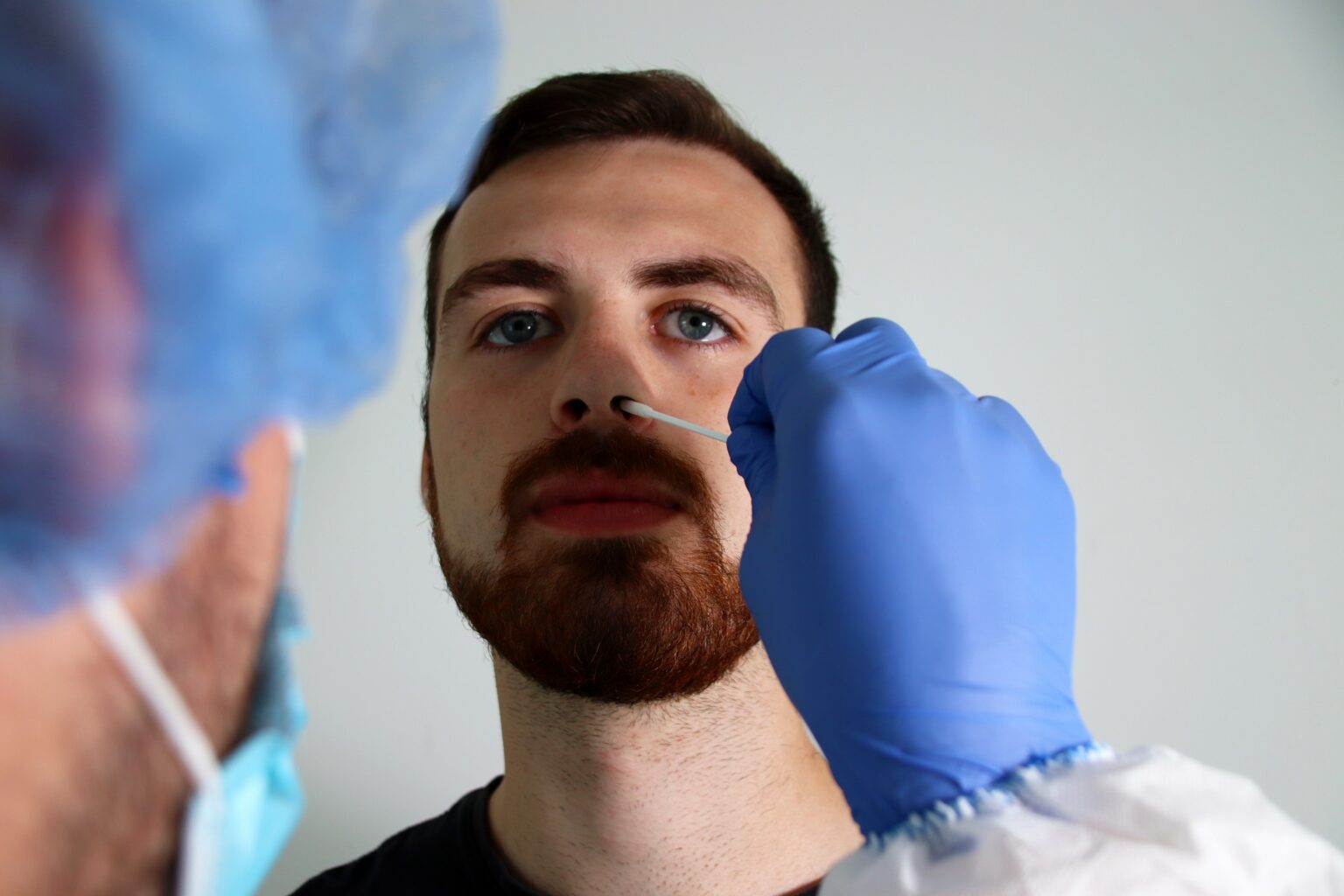In a recent blog post, we discussed travel restrictions and the need for pre-travel testing. Most, if not all, countries across the globe require that travelers provide a negative COVID-19 test or proof of a recent infection. Among those countries requiring a negative test for entry, the majority require a PCR test instead of the less sensitive (although still useful) antigen test.
Closer to home, many government buildings, entertainment venues, and medical clinics (to name a few) require proof of a negative PCR test for everything from eating in a restaurant to entering a building or getting a medical procedure.
The common thread is the COVID-19 PCR test. But what is PCR testing, and what do you need to know about taking one?
What is a PCR Test?
PCR stands for Polymerase Chain Reaction Test. In a PCR COVID test, a patient sample is tested in the lab by isolating the genetic material collected on a nasal swab – most commonly from the middle or back of the nose. This material, which is essentially a specific part of the SARS-CoV-2 virus (the virus that causes COVID-19), is then treated using special chemicals and the application of heating and cooling to increase the amount of material. Once enough material is created, it is tested using tried and true techniques to detect the presence or absence of SARS-CoV-2.
The key thing about the PCR test is its ability to find evidence of the COVID-causing virus in minute quantities. The PCR test can find even trace amounts of the virus, resulting in a more sensitive and accurate result.
What You Need to Know about PCR Tests
That’s good news, right? Well, not always. There are a few issues with the PCR COVID test that you should know ahead of time:
Issue 1: If you have COVID-19 or had it recently, the test will find it.
Need to prove that you’ve recovered from a recent bout of COVID-19? PCR probably won’t help. Because PCR is great at finding tiny amounts of genetic material, you will get a positive result if any residual virus remains in your system. If you need a negative test for travel or work, this is a major problem. Everyone is different – there is no way to predict how long you will test positive following a COVID-19 infection, but you can bet on weeks, if not months.
At the same time, the science currently indicates that after recovering from a COVID-19 illness, you are no longer contagious and should be able to safely return to “normal” activities within ten days or so. But a PCR test doesn’t know that you’re past the infection rather than just getting ill. As a result, you need to be smart about when to use a PCR test, what it’s actually telling you, and how to use your results ethically and practically. If you have recently recovered, you will likely need to show proof of a previous positive test (as is the case to travel to Aruba) or get certification from your doctor.
Issue 2: It’s slow (usually).
It’s a good bet that you’ve heard how difficult it is to come by PCR tests. And even when a test is available, it typically takes multiple days to receive your results. This is an issue for travelers who must show proof of a negative test administered within 72 hours of landing at their destination.
Most PCR testing, especially mass testing, is not done on-site at the testing location. In fact, your sample is probably express mailed to another city or state, where it’s processed along with thousands of other tests in a high-volume lab. While this allows for low-cost testing, it requires a lot of time. Time that you may not have.
Issue 3: You have to go there, and it’s crowded!
There are a few at-home, do-it-yourself PCR test options, but they are hard to get and only available in very limited quantities. For most people, meeting current COVID traveling requirements involves driving to a testing site, a drug store, or your local clinic. Anecdotal reports indicate crowded testing sites, with people waiting multiple hours just to get swabbed, much less receive results.
Issue 4: Not all testing is created equal.
PCR is one of many molecular tests used to detect genetic material like the virus that causes COVID-19. Molecular COVID-19 tests all do fundamentally the same thing – amplify genetic material – but there are multiple ways of accomplishing this goal. A brief exploration of the subject will reveal a mass of acronyms like RT-PCR, LAMP, NAAT, and so on. As testing options multiply, the diversity of testing is increasing.
This is a big issue for travelers and something to watch for when planning your next trip. Most countries require a negative PCR test, but a handful require a specific type (usually the RT-PCR test). It’s important that you understand the unique requirements for your destination.
euverita’s Rapid PCR Testing to the Rescue!
It’s enough to make your head swim. And unfortunately, things are only getting more complex as we enter year three of the pandemic.
The good news: rapid PCR testing exists, and appointments are easy to get if you know where to look. euverita offers a NAAT/PCR test that takes only 30-60 minutes to process. This test provides you with quick and accurate test results and travel-ready documentation accepted by most countries. Whether you prefer we come to you at home or work, or you’d rather visit our South Saint Paul Clinic, we offer same-day testing in the Twin Cities metro and Western Wisconsin areas.
Information in this post was accurate at the time of its posting.



